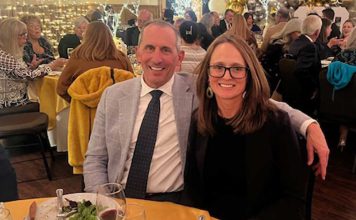Aaaah, retirement. If television commercials can be believed,
after age 65 we should all be jetting off on European holidays or
lounging on the beaches of the Caribbean.
Aaaah, retirement. If television commercials can be believed, after age 65 we should all be jetting off on European holidays or lounging on the beaches of the Caribbean. It’s the proverbial light at the end of a long tunnel that we worked toward for at least 40 hours a week for most of our lives.
But European holidays, Caribbean beaches and financial stability during our “Golden Years” takes a lot of planning – planning that experts say needs to start while we are in our 20s and 30s.
“Of all my clients, I’d say 20 to 30 percent are in that age group,” said Jeff Welch, a financial advisor in Hollister. “It’s absolutely important to get a head start on planning for retirement. The earlier you start, the bigger the dent you make in creating a stable financial future.”
There are several ways for Generations X and Y (those born between 1965 and 1987) to start setting aside money for retirement, including individual retirement accounts – better known as IRAs, – mutual funds, 401(k) plans at work or simply setting aside a certain amount of money each month in a savings account, Welch said.
“There are dos and don’ts in planning for the future, some of which are obvious,” he said. “Try to have no debt, if possible, and keep expenses low. Don’t buy a $40,000 car when you’re 25. Make a monthly investment into a mutual fund or put as much as possible into your 401(k) at work. If you’re not financially savvy or don’t have a good feel for the markets, find a professional to help you. Don’t use the first person you find in the phone book or the first person Merrill Lynch hands you. Ask around and use someone who’s referred to you. After all, you’re trusting this person with your money.”
But for Generation X and Yers, setting aside funds for the future may seem daunting when dealing with student loans and the lower incomes that go hand-in-hand with being newbies in the corporate world.
“I do put aside money in the 401(k) at work because they put in $1.50 for every dollar I put in,” said Ketrina Hammel, 24, who was hanging out at a Starbucks in Gilroy Wednesday night. “But if I didn’t have the 401(k) at work, I probably wouldn’t have anything put aside for retirement.”
Hammel’s friend, 23-year-old Christina Legnon, also said she put money into a 401(k) – named after the federal tax code that created the savings plan – at her office but only because the company evenly matched her investments, which she called “free money.” She said she can’t afford to put any more aside.
If 20- and 30-somethings can only afford contributing to a 401(k), that’s still a good start, Welch said. If they’re stuck in a worst-case scenario and have a lot of debt from school or credit cards and can’t afford to set aside any money, then the key is to get set up to start saving as soon as possible.
“You can’t put a square peg in a round hole – if the money isn’t there, it isn’t there,” Welch said. “But you can work to get that debt paid off as soon as possible so you can start investing in your retirement. Get control over your expenses, learn to live on a budget you’ve set for yourself and work toward putting the money you’re currently using to pay off debt towards retirement instead.”
Once Gen X and Yers start investing in the future, they need to continue doing so, which isn’t always an easy task. According to statistics on the Alabama State Treasurer’s Web site, about half of American workers cash out their 401(k) savings when they change jobs instead of rolling it over into an IRA. Not only does this mean significant tax penalties and increased taxable income, it means these workers are pulling money out of their future. It may also be tempting to pull money out of retirement accounts for things in the near future, such as home purchases, but this should also be avoided.
In a list of retirement-planning tips on the state of Indiana’s Web site, young workers are warned against counting on pensions or Social Security alone to sustain them after retirement. The site warns this could be a dangerous mistake because people’s life expectancy is currently 30 years longer than it was 100 years ago.
“The best advice I can give is actually to parents,” Welch said. “Teach your kids about money and about how business works. Have them sell something on eBay or sell lemonade on the corner or baby-sit. That way, they understand how things work. They know how to be responsible with money and they’ll get used to the idea of saving and managing money early in life, which will serve them well later.”











